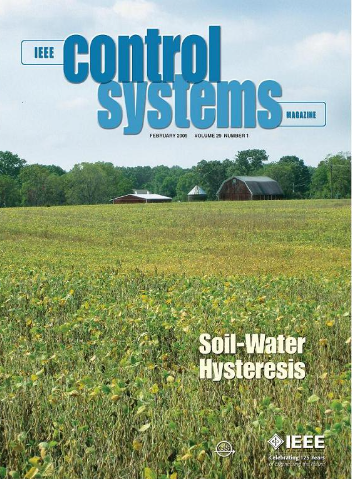金融工程数学与工具[书架]
IF 3.9
3区 计算机科学
Q2 AUTOMATION & CONTROL SYSTEMS
引用次数: 0
摘要
正如这本专著的标题所描述的那样,这本书有两个主要目的:1)介绍用于金融工程的数学,2)提供金融工程研究所必需的金融工具。这里展示的数学是从不同领域精心挑选出来的,旨在展示金融工程领域的跨学科特征。本书的数学部分调查了集合论,线性代数,实分析,近似和数值分析,优化理论,概率论和随机过程的元素。选择几个数学领域的要素(每个主题通常在一个专门的学期课程中教授)是一个艰巨的挑战,需要教学经验。很明显,这本书是根据作者教这门课的经验写的。数学部分强调线性代数的主题,包括矩阵及其运算,线性方程和求解线性方程组的方法,计算矩阵的逆,以及确定特征值和特征向量。虽然这些主题可以在线性代数的基础课程中获得,但本书中对这些材料的简洁介绍增强了这些思想的成功交流。本书的数学工具部分继续研究函数的优化,然后是随机过程。同样,虽然所有这些数学主题都可以在其他地方找到,但作者将它们浓缩成一个非常可读的帐户。本文章由计算机程序翻译,如有差异,请以英文原文为准。
Mathematics and Tools for Financial Engineering [Bookshelf]
As the title of this monograph describes, the book has two major aims: 1) to present the mathematics that are used for financial engineering and 2) to provide the financial tools that are necessary in the study of financial engineering. The mathematics presented here are very thoughtfully selected from different areas and serve to demonstrate the interdisciplinary character of the financial engineering field. The mathematics part of the book surveys elements of set theory, linear algebra, real analysis, approximation and numerical analysis, optimization theory, probability theory, and stochastic processes. The selection of the elements of several areas of mathematics (with each topic typically being taught in a dedicated semester-long course) is a tough challenge and requires teaching experience. It is obvious to this reviewer that the book is written based on the author’s experience in teaching this course. The mathematical part emphasizes topics of linear algebra, including matrices and their operations, linear equations and methods for solving systems of linear equations, computing the inverses of matrices, and determining eigenvalues and eigenvectors. While these topics can be obtained in a basic course in linear algebra, the succinct presentation of this material in this book enhances the success of communication of these ideas. The mathematical tools part of the book continues with the study of optimization of functions and then stochastic processes. Again, while all of these mathematical topics are clearly available elsewhere, the author has condensed them into a very readable account.
求助全文
通过发布文献求助,成功后即可免费获取论文全文。
去求助
来源期刊

IEEE Control Systems Magazine
工程技术-自动化与控制系统
CiteScore
3.70
自引率
5.30%
发文量
137
审稿时长
>12 weeks
期刊介绍:
As the official means of communication for the IEEE Control Systems Society, the IEEE Control Systems Magazine publishes interesting, useful, and informative material on all aspects of control system technology for the benefit of control educators, practitioners, and researchers.
 求助内容:
求助内容: 应助结果提醒方式:
应助结果提醒方式:


